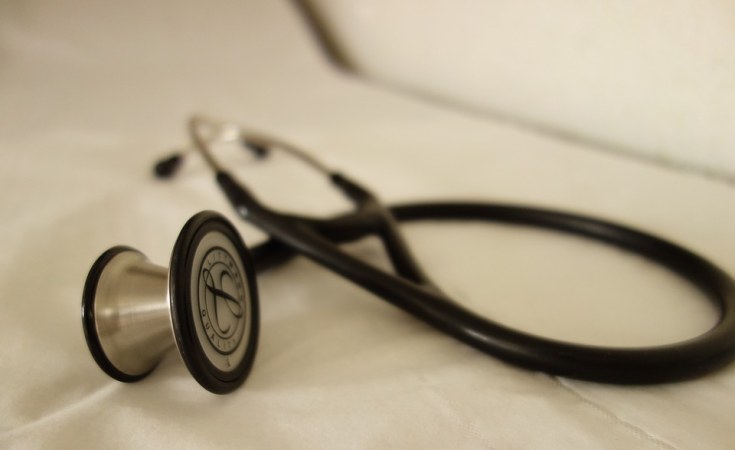Mr Gates said Nigeria's huge youth population represents many potential skills and passion for solving big problems.
The Co-chair of the Bill and Melinda Gates Foundation, Bill Gates, has cited poor investment in the nation's health sector as part of the challenges limiting the potential of many Nigerians.
Mr Gates, who spoke on Wednesday in Lagos during the Pan-African Youth Innovation Forum, said the country spends only $10 per person on healthcare.
The amount is equivalent to N6,900 based on exchange rates in the Nigerian foreign exchange market on Wednesday as of the time of this report's filing.
Mr Gates said the Nigerian government must improve its investment in equitable solutions and in the people who are working on them.
He noted that Nigeria is full of talented people with many potentials, but it would be hard to fulfil the potential "if they don't have access to the most basic building blocks of life."
Mr Gates said: "It may not surprise you that Nigeria's state and the federal government only spend the equivalent of $10 on health per person each year, compared to $31 in sub-Saharan Africa.
"Leaders need to make a much bigger financial commitment, focusing most on improving primary health systems.
"Making sure clinics are well-staffed and supplied, making sure children get the vaccines they need--all of these is essential to improving health and opportunity and unlocking all of Nigeria's potential."
Mr Gates promised to speak with the government about increasing agricultural and digital financial systems commitments.
Engaging young innovators
Meanwhile, at the Forum, which was themed: "Advancing Africa: Unleashing the Power of Youth in Science and Innovation," Mr Gates interacted with Nigerian innovators and encouraged them to see opportunities in challenges.
According to the philanthropist, Nigerian youths have shown how passionate they are about progress but need to encourage their leaders to follow through on these commitments.
He said: "The last time I visited Nigeria in 2018, I spoke to government leaders about your country's potential for growth.
"This time, I wanted to speak also with you: Nigeria's next generation of innovators.
"Ever since I was a teenager, writing computer code on a terminal at my high school and later at Microsoft, I have loved the feeling of innovating to make something a little better for people--or a lot better.
"I'm sure you know this feeling too.
"There's going to be a lot of opportunity for you to continue to make a difference in the world because of the unprecedented potential of new technologies.
"However, Nigerians are still facing many of the challenges I talked about five years ago--and you have to contend with economic instability and security threats.
"I have a lot of faith that your generation will persevere and improve lives throughout Nigeria and beyond."
He said talented youths are a powerful asset for improving the world, noting that Nigeria's huge youth population represents many potential skills and passion for solving big problems.
He added: "Yesterday, I met some impressive Nigerians whom the Gates Foundation has partnered with for years.
"These scientists are improving seeds, fertiliser, and biopesticides so farmers can thrive in climate change and grow crops free of toxins.
"And I met with a researcher scaling up an effective way to reduce anaemia in pregnant women".
Mr Gates said young people need a strong support system to thrive, starting with education.
He added that Nigeria had a strong foundation, with some of the continent's best educational and research institutions.
He stressed the need to bridge inequity in health, education, financial services and pay gaps to drive development.
Mr Gates expressed his belief in the power of science and innovation to help people lead long, healthy lives. Still, he noted that he had learnt that the benefits don't automatically reach everyone.
"To do that, the people creating breakthroughs, funding them, and getting them into the world all need to prioritise equity," he said.
Expected interventions
The philanthropist said many exciting innovations in the global pipeline would improve lives here in Nigeria.
Mr Gates said: "They're going to prevent infectious diseases, provide life-saving interventions for mothers and babies; make food more nutritious, and give women more convenient contraception options.
"Down the road, Artificial Intelligence (AI) will be applied to bring quality healthcare and education to more people."
He expressed excitement at the AI's potential to save and improve lives but insisted that won't happen if profit was the only motive.
"So, our foundation is thinking about what we can do to help AI develop in ways that improve the lives and well-being of everyone, not just the wealthiest people in a few rich countries.
"The foundation has issued a call for proposals or what we call a "Grand Challenge" for innovative, safe uses of large language models.
"We received 1,300 proposals, and half of them were from Africa. The winners will be announced in Senegal in October.
"We hope what emerges will help build an evidence base for advancing equitable outcomes in health and development everywhere in the world," he said.


